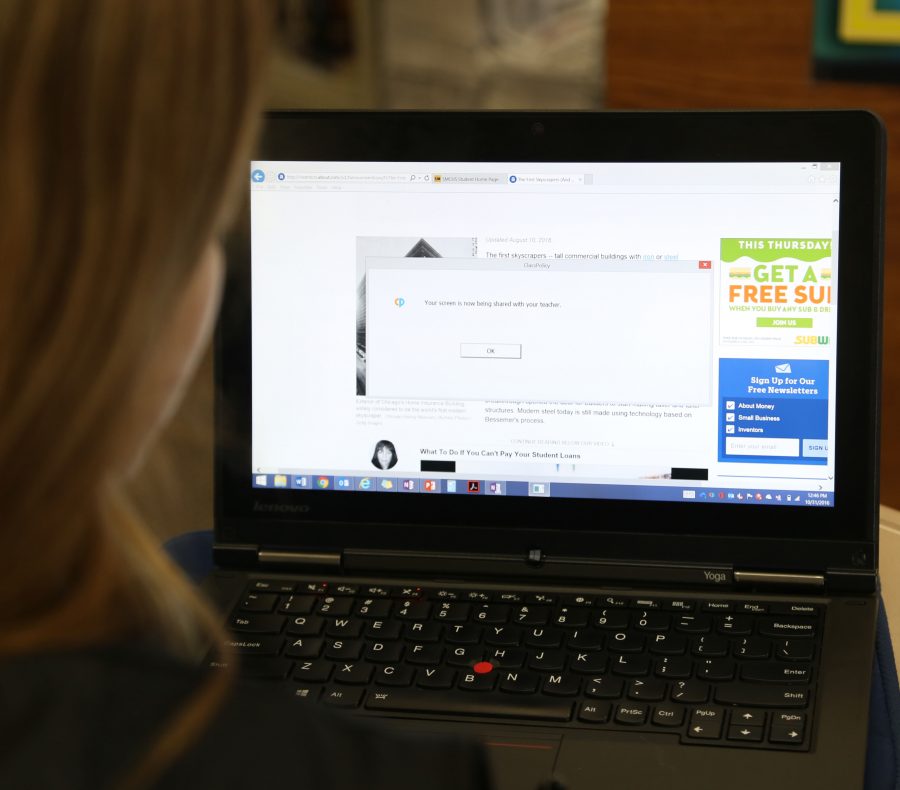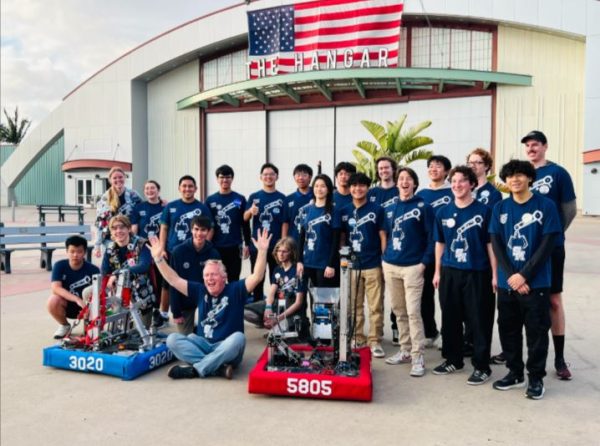Debunking mIThs
It’s time to get to the bottom of these IT rumors.
When they work independently on their tablets, students are constantly monitored by IT teachers alike.
When students at SMCHS were first introduced to the Lenovo tablets in the 2014-2015 school year, they were also introduced to the rumors that circulate around the powerful IT team.
Although some rumors might be partially true, IT, or Information Technology, claims to monitor tablets for safety reasons only when it is absolutely necessary (not just because they’re bored).
Rumor #1
“IT can see you through your camera whenever they want.”
This is mostly false. IT does not actively monitor kids through the cameras. The only way they could see you is if you were to open the camera and they happened to check your screen at that time. Keep in mind that IT can’t monitor you after 2:05 p.m.
However, although IT won’t look through your camera, outside hackers could easily do so. Hackers are everywhere; if they are able to hack into WikiLeaks, the presidential campaign and the CIA, they can target a teenager with a computer.
“I think what people need to understand is that its not just us,” director of IT Peter Leonard said. “You are a part of a network and you always have to be worried about your security online. We can try and block all harm but there are always other people.”
Rumor #2
“IT can read everything you say on Skype.”
This is true. There’s a reason that the school warned students that the privilege of computers comes with the condition of no privacy. Granted, IT does not snoop around, but if a concern arises, the problem will be reported to school authorities.
“There have been students disciplined in the past for concerning messages,” Leonard said. “Kids seem to hide behind technology to not have to look at someone in the face and say those words. But if you’re going to comment on something, make sure it’s something that you would say to their face.”
Rumor #3
“IT can control your screen if they see that you’re playing games.”
This is a thing of the past. When game apps were just discovered, IT would monitor certain grades or classes that were known to get off task. Also, IT used to alter the sound of the students who were playing games so that the high volume would catch the attention of the class and the teacher. They would also contact you via skype or writing on your notepad to make sure you returned to work.
“[Monitoring] is something that isn’t done everyday, it is something that is done as needed,” Leonard said. “Periodically we do check screens so students know we have the capability to check if they’re playing games. But it’s all about time. We don’t have the time to watch every single student.”
Students over the years have painted an inaccurate picture of the IT staff; students envision them as bored people who spend their time hoping to catch students and discipline them when they break the rules. The reality of the situation is that the IT department consists of people who are here to help us excel in this new era of technology — not the other way around.
“Our understanding of technology is that if there are students who are off task and playing games — its not us who is losing, its those students,” Leonard said. “It’s not our job to be the computer police, it’s our job to support you. That is all what we want to do.”










